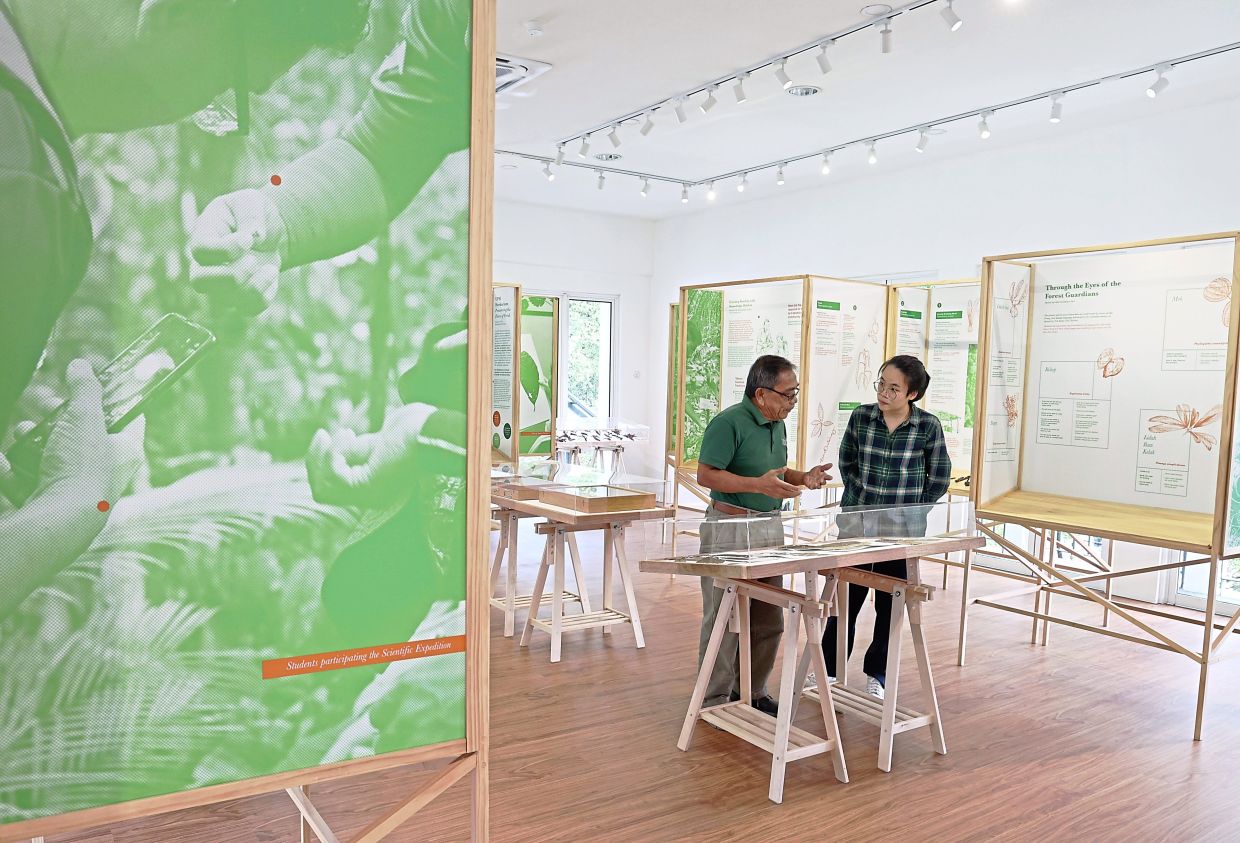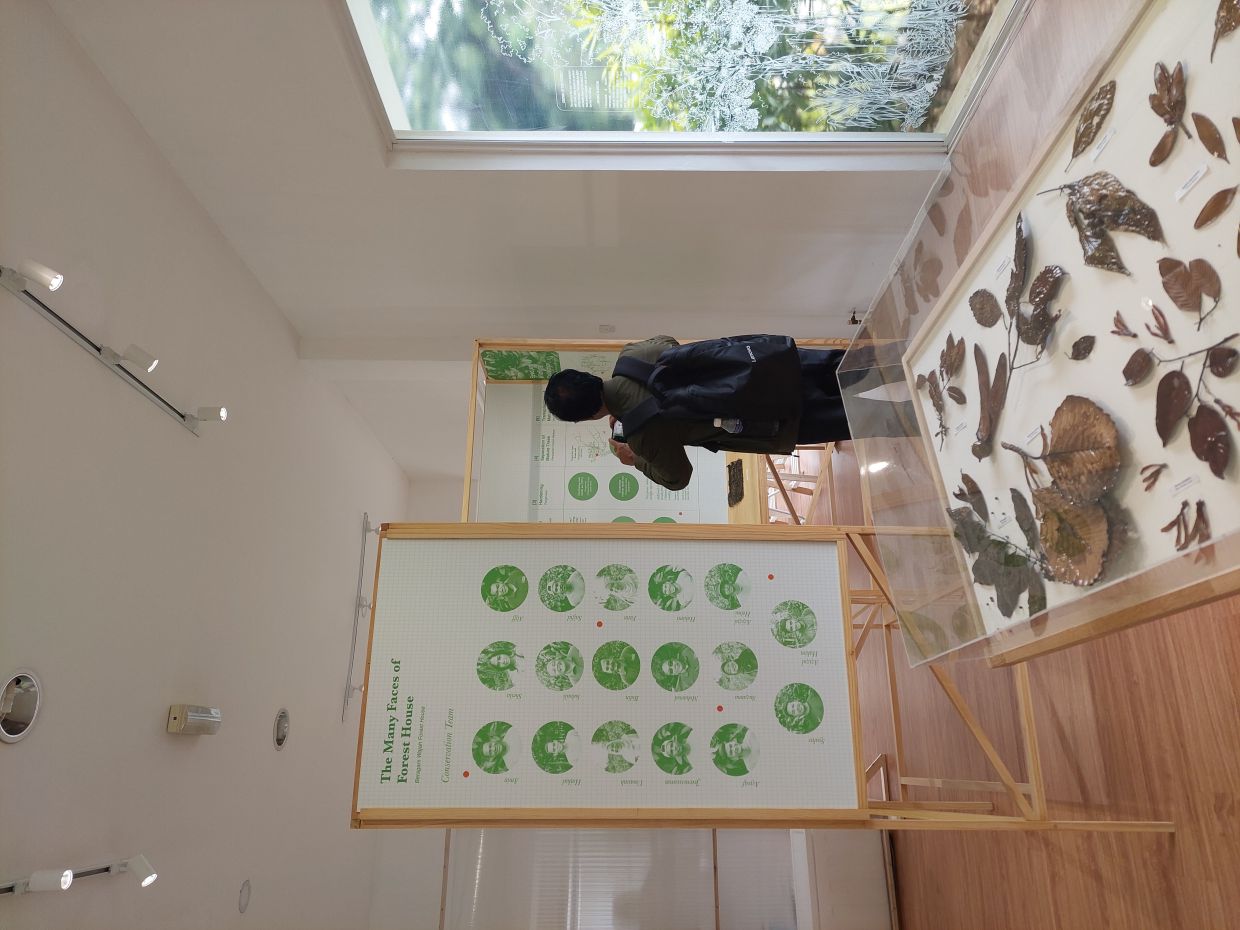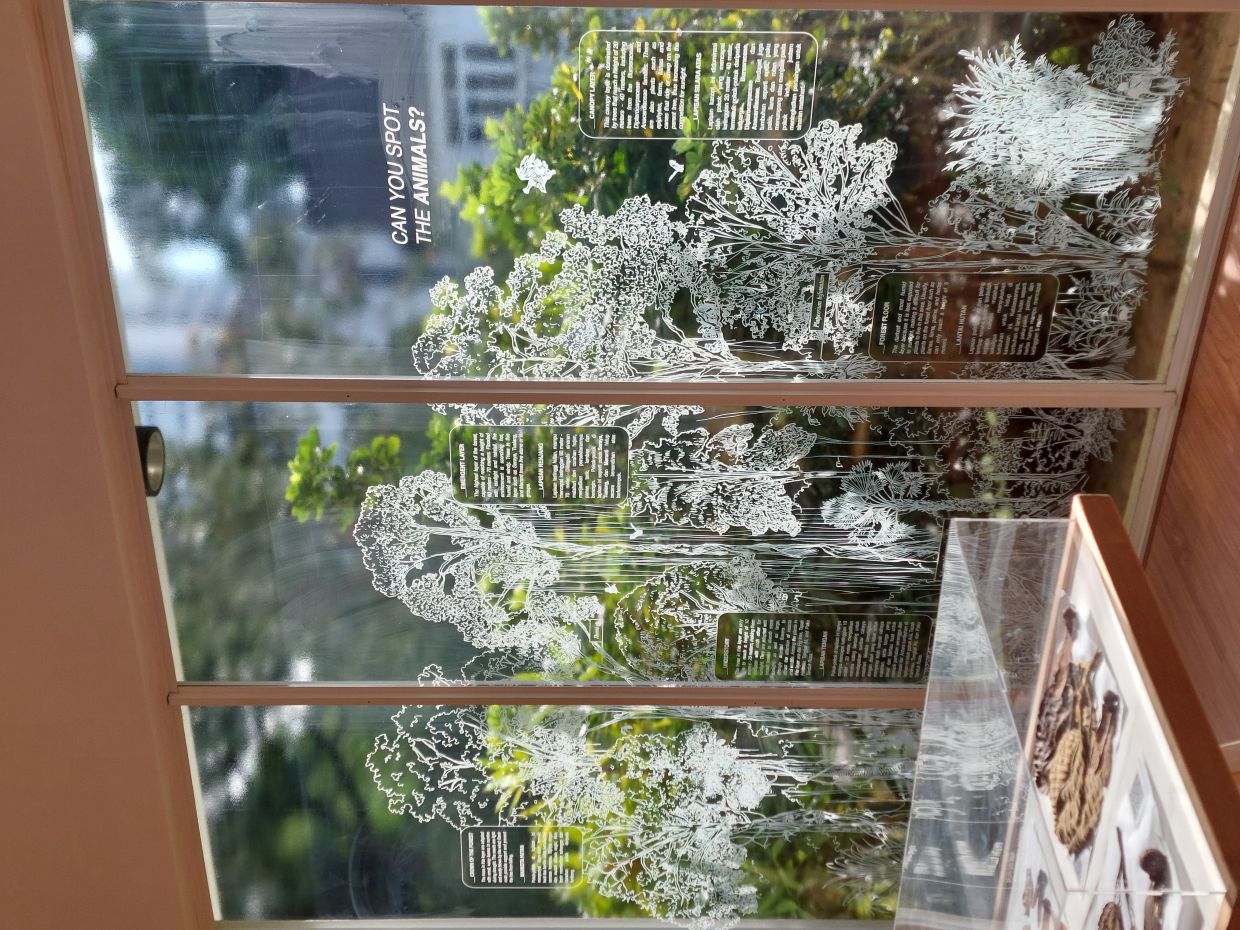The Forest Learning Centre's first exhibition, 'Forest Fever,' runs until August 25, featuring the Forest House activities and its conservation efforts. Photo: The Star/Art Chen
Kuala Lumpur has its fair share of museums, art galleries and parks, but it has yet to have a space that’s wholly focused on educating the public about Malaysia’s natural heritage – until now, that is.
The Forest Learning Centre (FLC), situated in the city’s lush 91ha Perdana Botanical Garden and right across from the herbarium, looks to fill in that gap.
Operated by the Forest House, a homegrown landscaping contractor, along with the support of Think City, Perdana Botanical Garden and Kuala Lumpur City Hall, the centre recently opened its doors to the public.
It’s a bright and airy space, with plenty of natural light coming in from the windows, offering those exploring the park respite from the heat should they need it.
According to Syarifah Nadhirah, the Forest House’s creative director under its Forest Conservation team, its vision for the Forest Learning Centre is to establish it as a hub for environmental education, particularly in the field of forestry.
“With our long-time focus and commitment to forest conservation and our ever-growing network of collaborative work with different organisations and institutions, we figured an established community space like the FLC would be a great place to convene, both to gather like-minded conservation groups and also as a means for public engagement and environmental education,” says Syarifah, who is also an artist and writer.
“We aim to deepen public appreciation of our natural heritage and foster community involvement in conservation efforts through a range of engaging programmes and activities, including educational nature walks and environment-themed exhibitions,” she adds.
Learning about trees
So how does a landscape contractor end up becoming involved in forest conservation?
In its work, the Forest House realised over time that one of its primary challenges was the availability of and expertise about local forest species, which are facing growing threats of displacement and extinction.
“The company began to understand the importance of conserving these precious species, especially those of Endangered, Rare and Threatened (ERT) status, and highlighting the concept of seed collection based on forest layers in most of its work,” says Syarifah.
So the Forest House established Forest House Conservation (FHC), which runs a nursery in Tanjung Malim, Perak, where they maintain a diverse collection of more than 150,000 seedlings of 221 species, including threatened and endangered dipterocarp species, wild fruits and canopy tree species.
Comprising 10 members and 10 nursery staff, the FHC team specialises in tree identification, nursery management, tree planting, forest restoration and forest trail development.
“The team meticulously identifies, collects and nurtures the seedlings in our nursery to ensure the continued dispersal of these species,” says Syarifah.
“Because there is a shortage of expertise on local trees, we also provide training and internship to ensure knowledge transfer of local tree species to the next generation of Malaysians, including the youth of indigenous communities,” she adds.
The Forest House has previously worked on projects such as Taman Tugu, City of Elmina, Eco Forest Trail in Elmina West and Bandar Ainsdale Lake Park.
Towards a greener future
Though it will primarily be an educational space, the Forest House hopes the FLC will become a place for the community as well.
“Spaces like the FLC play a pivotal role in disseminating knowledge and inspiring action toward a greener, more sustainable future, especially among urban and younger generations, as they work closely with conservationists, researchers and communities to nurture awareness and appreciation for our forests,” says Syarifah.
“To ensure that everyone gets the opportunity to learn the value of our natural environment and how to protect it, we also want to make the space and activities accessible to the least advantaged and marginalised communities, which could be done through sponsorships and community grants,” she adds.
For Think City, the FLC is a crucial piece of the puzzle in realising its vision for the Kuala Lumpur Creative and Cultural District.
“Natural assets and green spaces are among the important elements to improve liveability in the city. By establishing the FLC in the historical Perdana Botanical Garden, we aim to curate environmentally-related creative content and experiences in the city,” says Gan Yi Reng, Think City senior manager, who was present for the recent launch of the FLC.
Forest fever
The FLC’s first exhibition, Forest Fever, which runs through Aug 25, serves as an introduction to the Forest House and its work in forest conservation, including those done in collaboration with Universiti Pendidikan Sultan Idris (UPSI) and Universiti Putra Malaysia (UPM).
“We named our first exhibition Forest Fever because we were inspired by the stories we heard from our ground team, who often fall sick after spending weeks in the forest, being exposed to the heavy rains, insects, and the like. Rain or shine, work must go on,” says Syarifah.
Wandering through the exhibition, you’ll get to learn about their work with the Orang Asli community of Kampung Tibang, Perak to construct the forest trails of UPSI’s EduForest, as well as the work of UPSI’s Centre for Biodiversity and Conservation and UPM’s Sultan Idris Shah Forestry Education Centre, both renowned “living labs” for forestry research.
Besides the informative texts, you’ll find a variety of specimens – from moths and butterflies to the “Travelling Herbarium” of seeds and plants – on display, along with magnifying glasses to encourage visitors to view them up close. The Forest House staff members are also on hand to answer questions for those curious to learn more about the exhibit.
Syarifah, who is known for her body of work focusing on cross-pollinating art with ecological relationships, tells us that they have a lot planned for the three years that the Forest House is leasing the space.
“Visitors can expect a dynamic space that not only educates, but also inspires action for conservation. Our exhibitions will serve as platforms for dialogue and learning, encouraging visitors to explore and appreciate the intricate complexities of our natural world.
“Besides fresh exhibitions every few months, we plan to host workshops and talks that delve into forest-related topics such as biodiversity conservation, role of indigenous knowledge, wildlife and more through arts and science,” she adds.
So if you’re curious to discover more about Malaysia’s forests, make plans to drop by the FLC soon – you can even check out the Herbarium (Perdana Botanical Garden) nearby if you visit on a weekday.
The Forest Learning Centre at Perdana Botanical Garden is open daily (by appointment): Monday-Friday (11am-3pm) and Saturday-Sunday (10am-4pm). Free admission.
















